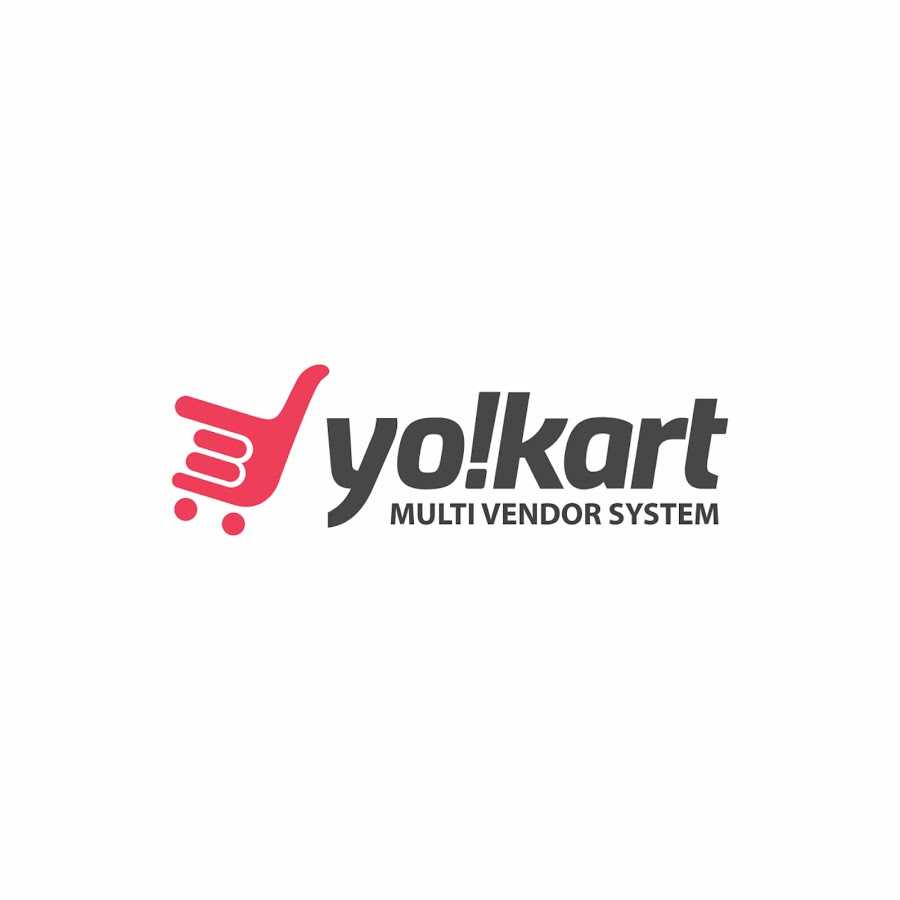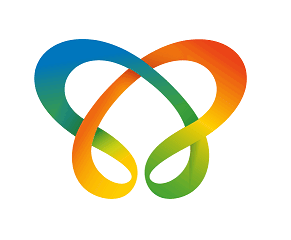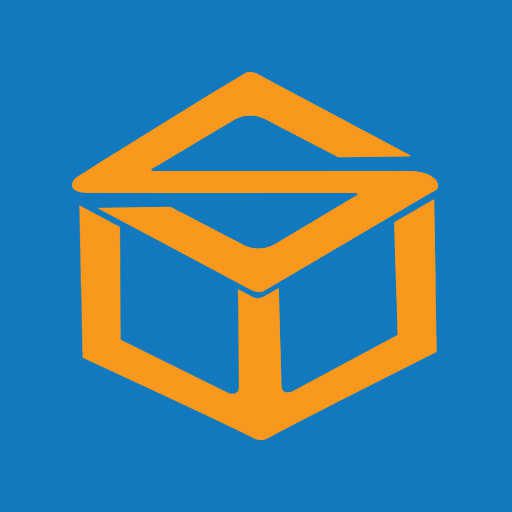Description

Yo!Kart

Inoday eCommerce Solution
Comprehensive Overview: Yo!Kart vs Inoday eCommerce Solution
Yo!Kart and Inoday eCommerce Solution are both significant players in the e-commerce platform market, each catering to different aspects of online retail business needs. Here’s a detailed overview of each, focusing on their primary functions, target markets, market share, user base, and key differentiating factors:
Yo!Kart
a) Primary Functions and Target Markets:
- Primary Functions: Yo!Kart is primarily a multi-vendor e-commerce platform designed to enable entrepreneurs to launch marketplaces akin to Amazon or Etsy. It provides a comprehensive suite of features tailored to both admins and vendors, including product catalog management, payment gateway integrations, order and inventory management, and a customizable storefront.
- Target Markets: Yo!Kart targets small to medium-sized enterprises (SMEs) and startups looking to establish a multi-seller marketplace. It's particularly appealing for those seeking a robust, scalable solution with a one-time payment model. The platform caters to a wide range of industries, from fashion to electronics and beyond.
b) Market Share and User Base:
- Market Share: Yo!Kart is a niche product in the overall e-commerce platform landscape but is quite prominent among solutions focused on multi-vendor marketplace creation. Its market share is growing as more entrepreneurs and businesses look to adopt the marketplace model.
- User Base: The user base primarily comprises startups, small businesses, and entrepreneurs aiming to facilitate a multi-vendor environment. Its user base has expanded globally, thanks to its multilingual and multi-currency support.
c) Key Differentiating Factors:
- Multi-Vendor Specific Features: Yo!Kart differentiates itself with features specifically designed for multi-vendor management, such as vendor-specific dashboards, commission management, and advanced reporting tools.
- One-Time License Fee: Unlike subscription-based models, Yo!Kart offers a one-time payment plan, which can be more cost-effective in the long run.
- Customizability: It provides extensive customization options, allowing businesses to tailor their marketplace to their specific needs.
- White-Label Solution: The platform offers a white-label solution, enabling businesses to create branded marketplaces without third-party associations.
Inoday eCommerce Solution
a) Primary Functions and Target Markets:
- Primary Functions: Inoday offers comprehensive eCommerce solutions, including web design and development, ERP integrations, and custom e-commerce software solutions. Its focus is on providing tailored solutions that integrate seamlessly with existing business processes.
- Target Markets: Inoday primarily targets medium to large enterprises that require extensive customization and integration with other business systems like ERP (Enterprise Resource Planning), CRM (Customer Relationship Management), and SCM (Supply Chain Management).
b) Market Share and User Base:
- Market Share: The Inoday eCommerce Solution is tailored to more extensive, enterprise-level deployments than Yo!Kart, positioning it as a more niche offering within the broader e-commerce systems market.
- User Base: Its clientele includes large businesses and enterprises that require bespoke solutions and robust integrations with other technological infrastructures. Companies that heavily rely on NetSuite ERP often look towards Inoday for its integration expertise.
c) Key Differentiating Factors:
- ERP Integration: One of the significant differentiators is Inoday's expertise in integrating eCommerce platforms with ERP systems, especially NetSuite, ensuring streamlined operations across business functions.
- Custom Development: Inoday provides custom development tailored to the specific needs of clients, allowing businesses to deploy highly specialized e-commerce solutions.
- Focus on Large Enterprises: Inoday places a strong emphasis on meeting the complex needs of larger enterprises, as opposed to small startups, which is reflected in their approach to solutions and customer service.
In summary, while both Yo!Kart and Inoday eCommerce Solution serve the e-commerce sector, their primary functions, target markets, and differentiating factors vary significantly. Yo!Kart is more suited for entrepreneurs and SMEs aiming to create multi-vendor marketplaces, while Inoday caters to larger enterprises needing custom, integrated solutions. Their market share and user base reflect these differences, with Yo!Kart being more prevalent among startups and small businesses, and Inoday serving larger, established companies.
Contact Info

Year founded :
2014
+91 85919 19191
Not Available
India
Not Available

Year founded :
Not Available
Not Available
Not Available
Not Available
Not Available
Feature Similarity Breakdown: Yo!Kart, Inoday eCommerce Solution
When comparing Yo!Kart and Inoday eCommerce Solution, both platforms offer features that cater to the diverse needs of businesses looking to establish or enhance their online presence. Here is a breakdown of their similarities and differences:
a) Core Features in Common
-
Product Management:
- Both platforms allow for comprehensive product catalog management, including adding, editing, and organizing products and categories.
-
Order Management:
- They offer robust order management systems to track orders from placement to delivery.
-
Payment Gateway Integration:
- Common payment gateway integrations are available in both platforms to facilitate smooth transactions.
-
User Management:
- Both solutions have systems in place for managing customers and vendors, including profiles, access controls, and activity logs.
-
Sales and Analytics:
- Reporting and analytics tools are included to track sales performance, visitor statistics, and marketing analytics.
-
SEO Tools:
- Essential SEO functionalities to improve search engine rankings of the online store are offered by both platforms.
b) User Interface Comparison
- Yo!Kart:
- Yo!Kart’s user interface is designed to be intuitive, with a focus on ease of navigation for both administrators and end-users. Its interface is visually appealing and customizable, which aids in reflecting brand identity efficiently.
- Inoday eCommerce Solution:
- Inoday's UI tends to emphasize functionality and integration, especially for businesses that may be using other ERP solutions provided by Inoday. The focus is often on seamless integration across various business processes, which might be a steeper learning curve for some users compared to Yo!Kart.
c) Unique Features
- Yo!Kart:
- Multivendor Capability: Yo!Kart is particularly known for its strong support for multivendor marketplaces, offering robust vendor management tools and commission structures.
- Customization Options: Yo!Kart offers high customization possibilities, enabling businesses to tailor their online store extensively according to specific needs.
- Inoday eCommerce Solution:
- ERP Integration: Inoday is particularly strong in offering deep integration with ERP systems, which is valuable for businesses looking to unify their eCommerce with back-office operations.
- Microsoft Dynamics NAV Support: For businesses using Microsoft Dynamics NAV, Inoday offers specialized support and integration options, which can be a significant advantage for enterprises reliant on this software.
In summary, both Yo!Kart and Inoday eCommerce Solution offer core eCommerce functionalities, but they cater to slightly different business needs with their unique strengths—Yo!Kart with its multivendor capabilities and customization, and Inoday with its ERP integrations and support for Microsoft Dynamics NAV.
Features

Not Available

Not Available
Best Fit Use Cases: Yo!Kart, Inoday eCommerce Solution
When considering eCommerce solutions like Yo!Kart and Inoday, it's crucial to evaluate their features, scalability, and the specific needs they address for businesses and projects. Here's a detailed analysis of how each solution serves different types of businesses and scenarios:
Yo!Kart
a) Best Fit Use Cases:
-
Multi-vendor Marketplaces: Yo!Kart is specifically designed to create multi-vendor eCommerce platforms. It's ideal for businesses aiming to establish marketplaces where multiple sellers can list their products, similar to marketplaces like Amazon or Etsy.
-
Startups: The platform is well-suited for startups that are looking to launch quickly with a robust solution that provides essential functionalities out-of-the-box, allowing them to compete with larger marketplaces.
-
Niche Marketplaces: Businesses targeting specific industries or niches, such as local artisans, handmade crafts, or specialized electronics, can leverage Yo!Kart to create a focused platform that caters to their unique audience.
-
Entrepreneurs with a Focus on Customization: Yo!Kart offers significant customization capabilities, making it a great choice for businesses that want to tailor their platforms to specific business models and consumer needs.
d) Industry Verticals and Company Sizes:
- SMEs and Mid-sized Companies: Yo!Kart's pricing and comprehensive feature set make it accessible to small and medium-sized enterprises that need a ready-to-deploy solution.
- Retail & Consumer Goods: Particularly beneficial for sectors like fashion, electronics, and home goods where diverse vendor participation can drive product variety and sales.
Inoday eCommerce Solution
b) Preferred Use Scenarios:
-
Integration Needs: Inoday, known for its expertise in ERP and technology solutions, is a preferred choice for businesses that require deep integration with ERP systems like NetSuite. This is particularly relevant for companies looking to streamline operations between eCommerce and supply chain management.
-
Custom Development Projects: Companies that need custom eCommerce solutions tailored to complex business models can benefit from Inoday’s breadth of development services and its ability to deliver bespoke solutions.
-
Enterprise-level Businesses: Larger organizations with existing infrastructure looking to upgrade or integrate robust eCommerce capabilities without disrupting their current operations may find Inoday’s solutions advantageous.
-
Businesses with Unique Business Logic Requirements: Companies needing specialized workflow automation, data analytics, and system integrations can leverage Inoday’s consulting and technical expertise to achieve their objectives.
d) Industry Verticals and Company Sizes:
- Large Enterprises: Inoday caters to larger businesses with complex operational requirements, offering scalable solutions that grow with the business.
- Manufacturing and Distribution: Industries that need efficient inventory, supply chain management, and deep system integrations benefit significantly from Inoday's solutions.
- B2B eCommerce: Ideal for businesses focused on business-to-business transactions, requiring detailed pricing, contractual terms, and bulk processing capabilities.
In summary, both Yo!Kart and Inoday eCommerce Solution present unique advantages catering to specific business needs. Yo!Kart excels for niche, multi-vendor marketplaces targeting startup and SME sectors, while Inoday is suited for larger enterprises requiring custom solutions with extensive integrations. Businesses should evaluate their specific requirements and growth objectives when choosing between these platforms.
Pricing

Pricing Not Available

Pricing Not Available
Metrics History
Metrics History
Comparing undefined across companies
Conclusion & Final Verdict: Yo!Kart vs Inoday eCommerce Solution
To provide a well-rounded conclusion and final verdict on Yo!Kart and Inoday eCommerce Solution, let's break down each aspect of your request:
a) Considering all factors, which product offers the best overall value?
When evaluating which product offers the best overall value between Yo!Kart and Inoday eCommerce Solution, it is essential to consider factors such as pricing, features, scalability, customization, ease of use, support, and target audience.
Yo!Kart:
- Yo!Kart is a dedicated multivendor eCommerce platform well-suited for those who want to build marketplaces like Amazon or eBay. It provides a comprehensive suite of features specifically tailored for marketplace creation, including sophisticated vendor management, payment gateways, and shipping integrations. The platform is highly customizable, allowing businesses to adapt their marketplace to specific needs.
Inoday eCommerce Solution:
- Inoday offers tailored eCommerce solutions that can be customized to fit different business needs. Unlike Yo!Kart, Inoday might not be exclusively a marketplace builder but provides flexibility and integration capabilities. Some value may come from personalized solutions for businesses looking for specific integrations or unique eCommerce functionalities not preset in off-the-shelf products.
Overall Value Verdict:
- If your primary goal is to create a multivendor marketplace with out-of-the-box capabilities, Yo!Kart is likely the better value due to its ready-to-use features specific to that business model.
- On the other hand, if you need a custom eCommerce solution that may involve specific integrations or business processes, the flexibility of Inoday eCommerce Solution could prove more valuable.
b) The pros and cons of choosing each product
Yo!Kart Pros:
- Designed specifically for multivendor marketplaces.
- Ready-to-go features that support various marketplace functionalities.
- Strong vendor management systems.
- Multiple third-party integrations.
- Active development and community support.
Yo!Kart Cons:
- May require some customization for niche-specific needs.
- Higher upfront cost related to initial setup and licensing compared to starting with a smaller single-vendor solution.
Inoday eCommerce Solution Pros:
- Customizable to fit unique business requirements.
- High flexibility for specialized eCommerce needs.
- Capable of integrating with various platforms and business tools.
- Potential for tailored support and solutions.
Inoday eCommerce Solution Cons:
- May not provide as many pre-built features specific to multivendor setups.
- Could involve higher development costs and longer deployment times, particularly for businesses starting from scratch.
- The fully customized approach might become complex and hard to manage over time without a clear long-term development strategy.
c) Recommendations for users trying to decide between Yo!Kart vs Inoday eCommerce Solution
-
Assess Your Business Model: If you're planning a marketplace with various vendors, Yo!Kart is specifically designed for that purpose. For unique or highly specialized online retail operations, consider the flexibility of Inoday.
-
Budget and Timeframe: If your budget allows for robust upfront investments and you need to launch quickly with a feature-rich marketplace, Yo!Kart is a strong contender. If you have specific feature needs and a more flexible timeline, Inoday's customizable offerings might be more suitable.
-
Customization Needs: Evaluate how much customization your business will require. If off-the-shelf features can not satisfy your needs, Inoday provides the ability to tailor a solution to your exact specifications.
-
Scalability and Future Growth: Consider future plans for expansion. Ensure the chosen platform can scale as your marketplace or eCommerce business grows. Yo!Kart offers scalability specifically for marketplaces, whereas Inoday can potentially cover a broader range of needs according to customized specifications.
-
Support and Community: Assess the level of community support and available resources. Yo!Kart has a strong seller and developer community, which could be beneficial for troubleshooting and new feature implementations.
In conclusion, both Yo!Kart and Inoday eCommerce Solution have their strengths, and the right choice will largely depend on your specific business needs, technical requirements, and long-term vision. Careful evaluation of each product's capabilities in relation to your unique situation will guide you toward the best value choice.
Add to compare
Add similar companies



